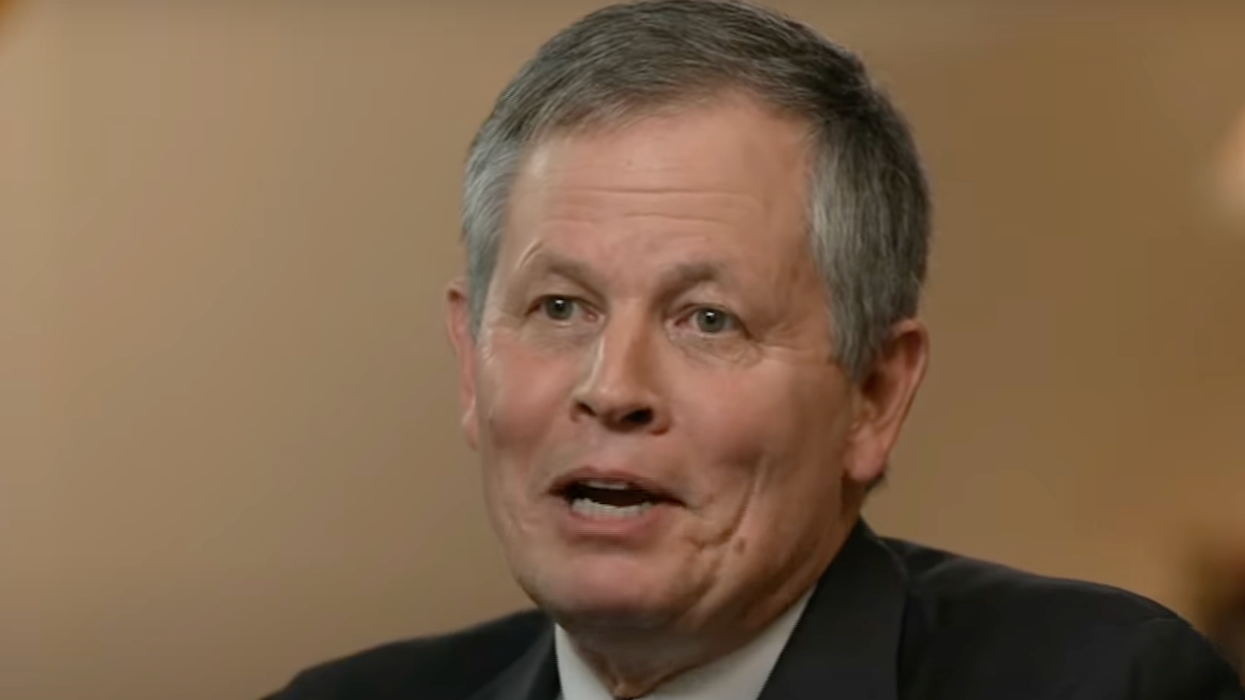Trump bypasses 'three Johns' in announcing his endorsement for next GOP senate leader


Former President Donald Trump has announced his favored choice for the next Republican leader in the US Senate — and his name isn't John.
Politico first reported that Sen. Steve Daines (R-Montana) is Trump's chosen pick to succeed outgoing Senate Minority Leader Mitch McConnell (R-Kentucky), who said Wednesday he would be stepping down from his leadership role in November. However, Daines has not yet announced his candidacy for senate leadership, and Politico's source said that while he appreciates Trump's support, he's "focused on winning back the Senate majority this fall."
Daines already has some leadership experience, having been the chairman of the National Republican Senatorial Committee (NRSC) since 2023. He notably assumed the role after his predecessor, Sen. Rick Scott (R-Florida), oversaw the GOP's failure to retake the US Senate in the 2022 midterms after Trump-endorsed candidates — like Blake Masters in Arizona, Mehmet Oz in Pennsylvania and Herschel Walker in Georgia — all failed to defeat their Democratic opponents.
Trump's endorsement of Daines means he's not bullish on any of the "three Johns" who are currently in Senate Republican leadership roles or held them in the recent past. Sens. John Barrasso (R-Wyoming), who is chair of the Senate Republican Conference, former Senate Majority Whip John Cornyn (R-Texas) and current Senate Minority Whip John Thune (R-South Dakota) — not to be confused with Sen. John Hoeven (R-North Dakota) — are all assumed to be in the running to lead their caucus after McConnell steps down. Cornyn was the first to officially throw his hat into the ring.
McConnell served in Senate GOP leadership for decades, beginning in 2003 when his colleagues elected him to be majority whip under then-Senate Majority Leader Bill Frist (R-Tennessee). He oversaw a period of unprecedented obstruction, with use of the filibuster skyrocketing while he was at the helm. The US Senate's website shows that the number of cloture motions — which triggers a process in which 60 senators must vote to advance legislation for consideration — more than doubled between the 112th and 113th Congress from 115 to 252, when McConnell first started to lead Republicans.
As the GOP's leader in the US Senate, McConnell also led the effort to successfully steal a third Supreme Court appointment from Obama in 2016, when he tapped then-DC Circuit Court of Appeals chief justice Merrick Garland to replace the late Antonin Scalia. McConnell refused to hold confirmation hearings for Garland and ran out the clock before the presidential election, then moved to quickly confirm Neil Gorsuch to the Court after Trump nominated him in 2017. McConnell later called his blocking of Garland's confirmation "the most consequential thing I've ever done."
The GOP has a history of elevating senators named John or Jon to leadership roles in the past. Sen. Jon Kyl (R-Arizona) was minority whip prior to Cornyn's time in that role, and Sen. John Ensign (R-Nevada) chaired the NRSC between 2007 and 2009. And even though Sen. John McCain (R-Arizona) never led his caucus, he did chair the Senate Armed Services Committee, and led his party in the 2008 presidential election, which he lost to then-Sen. Barack Obama (D-Illinois).
READ MORE: 'We're coming for you': Steve Daines outlines GOP's strategy to retake the US Senate